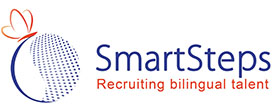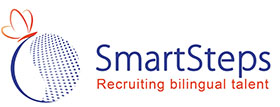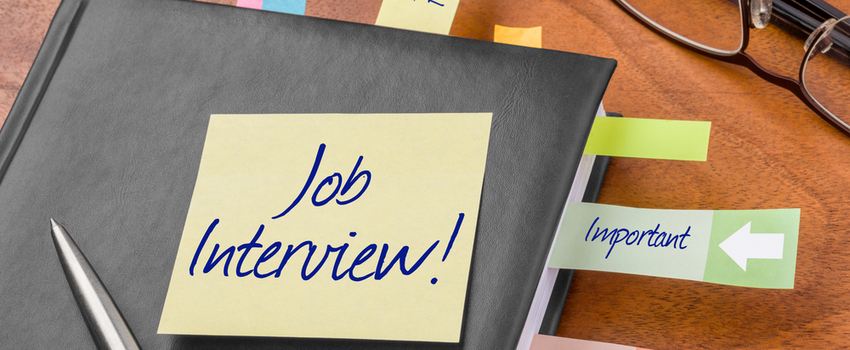One important key to success is self-confidence. An important key to self-confidence is preparation!
This document is tailored to job seekers on the French market and covers interview basics! It is not designed to be exhaustive.
THE BASICS!
- Be on time! Plan for last minute public transport problems and bad weather.
- Be the image of your future employer.
- Be organized! Take a clean copy of your CV and other supporting documentation (written references, diplomas, …). Take notes (you won’t remember everything)!
Did you know? You may have the right, during your notice period, to paid time off for interviews. It is not French law that allows this, but rather your collective bargaining agreement “CBA”. Check your CBA to see if you can attend interviews during your paid working hours.
THE THREE TRUE INTERVIEW QUESTIONS!
All questions are just different ways of asking one of three questions:
1. Can you do the job? (Do you have the hard skills?)
2. Will you love the job? (Are you motivated? Will you stay a sufficient amount of time to make our investment in you profitable?)
3. Do I like you? (Do you have the soft skills? Will you fit in? Are we on the same wave length?)
ROUTINE QUESTIONS
- What are your strong/weak points? If you are uncomfortable describing yourself, we advise you complete some free on-line personality tests. The results will guide you. (soft skills)
- Why are you leaving your current job? (motivation)
- Why do you want this job? (motivation)
- Tell me about yourself? (soft skills) *See Elevator Pitches below.
- Give an example of how and when you showed such skill. (hard skills)
- Where do you see yourself in 5 years time? (motivation) **
|
*Tip – Rather than give the interviewer the job title above the one for which you are currently applying, try talking about how you see your self development and training, talk of it in a selfhelp way, … “i am about to start part-time training in my own time to improve this skill”,… Recruiters want to think about employees being happy in the role for which they are applying! |
|
**Tip – Tell me about yourself is a big question to which there are many answers! Here there is potential for rambling! Try narrowing down the question and asking your interviewer: What would you like to know exactly? Would you like me to talk to you about my professional experience? Would you like me to talk about my studies/education? … It’s a little bit the same question as “introduce yourself” to which it may be best to ask what your interviewer would like to know exactly? |
PROFESSIONAL “BLIPS”
Many of us have professional experiences we would prefer not to discuss. Nevertheless, we are sometimes obliged to answer uncomfortable questions. Our advice is:
- Plan your answer,
- Remain positive,
- Remember, most often it is not what you say, but how you say it.
- If all else fails “less said the better”!
ELEVATOR PITCHES
Interviewers with little time may ask you to introduce yourself briefly with the “tell me about yourself” open question. If you haven’t prepared your response, this is where you could ramble! Americans frame the answer to this question in an “elevator pitch”. It helps organise your answer. In a few words (1 minute), answer the questions below and you have your pitch! The answer goes around the same three true interview questions.
- Who are you? (hard skills)
- Give a few professional details (your hard skills), I have 20 years experience as (job title) in (x) sector(s), the objective of my job is X (something brief, along these lines);
- Do I like you? (soft skills)
- Name your skills. See personality tests, end of year evaluations, think about your skills transferable to this role;
- Do I like you? Can you do the job?
- Name your greatest strength, achievement or a compliment you’ve received (inspire yourself from professional references, general feedback or some other outstanding experience),
- Are you motivated?
- State what you would like to do and why you would like to do it. Why did you apply for this job?
- Pitches can be difficult exercises, look at as many Elevator tutorials on YouTube as possible to guide you (for graduates to more experienced applicants).
- As a general rule, try to narrow down open questions. Is there is anything in particular you would like to know?
- Do not give them your life story. The interviewer is really asking why should we recruit you for this job? What can you offer?
- Elevator pitches are supposed to solicit a discussion, an exchange. From your pitch the interviewer will ask for precisions.
- Be natural, but remember you don’t have to share everything!
- Always keep in mind what you can offer a company. How can they benefit by recruiting you?
- To answer with ease, write a draft pitch. You can then see what needs adding, adjusting and time yourself speaking at a normal pace. Once perfected learn it by heart.
SALARY TALK!
- Know your salary expectations! HR professionals talk in gross annual salary (including the 13th month). Discuss your package separately. Interviewers take notes, it is complicated to go back on what was said in the initial interview.
- As a general rule sell yourself first, negotiate afterwards! Salary and advantages are important, however, your first interest should be the job (not salary, hours and home working)! Asking about salary and perks before being invited and putting too much emphasis on them is badly perceived.
- Ask your Consultant for salary advice.
VIDEO INTERVIEWS
Professional Video Calls (tips)
RE-CAP
It takes a lot of time (references, tests, interviews) to send quality files to clients to increase your chances of securing an interview. Working on your interview skills will not only apply to the job for which you are being interviewed but will also apply to other future roles, internal or external! It’s very rewarding knowing you’ve done your very best !


